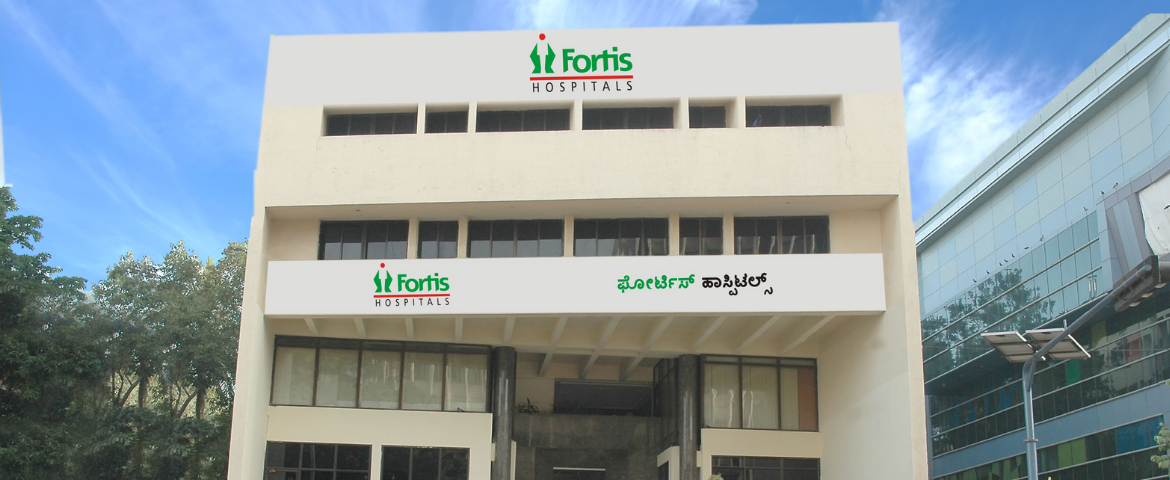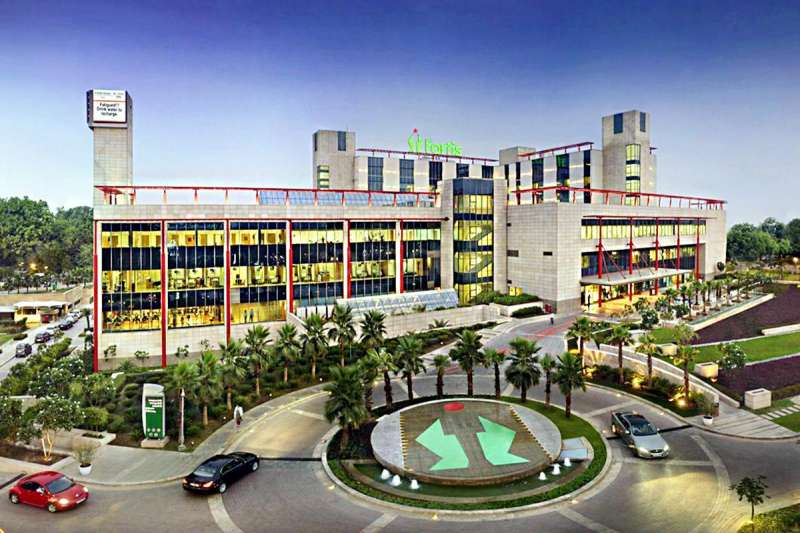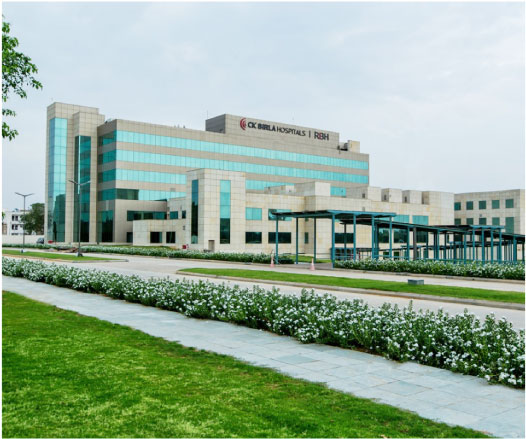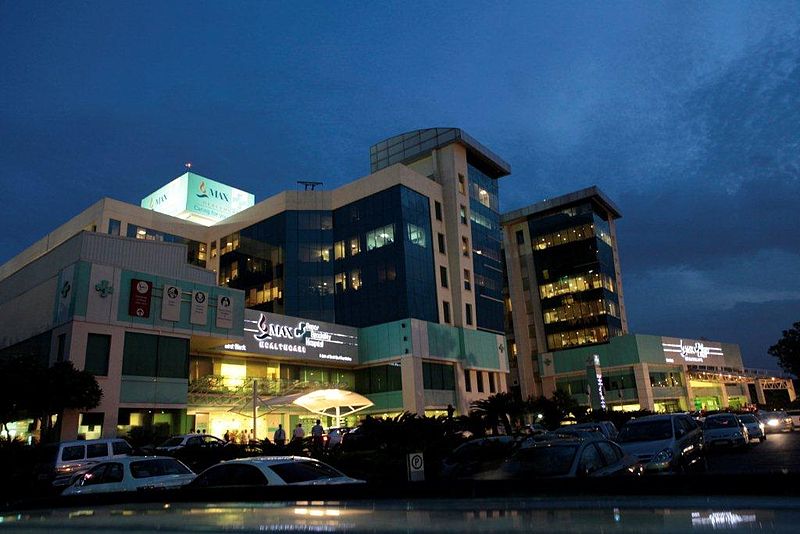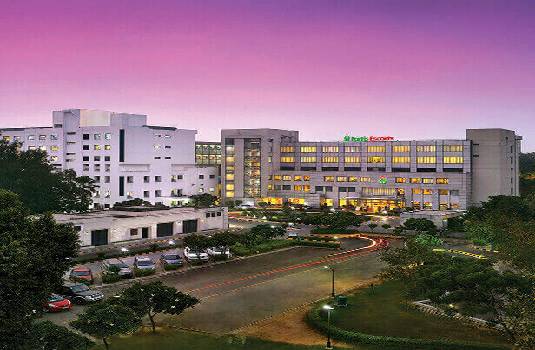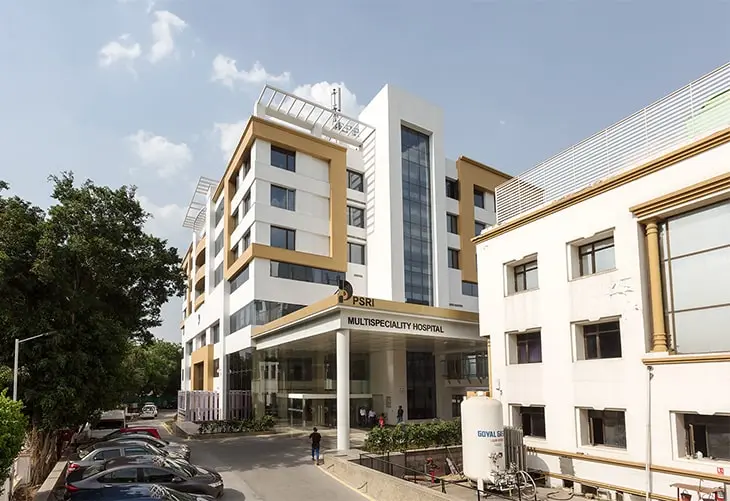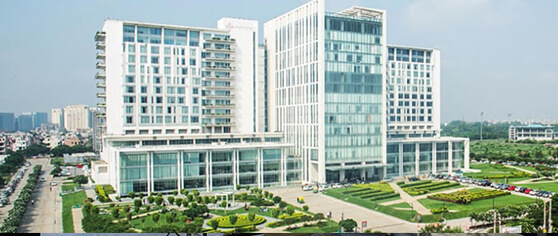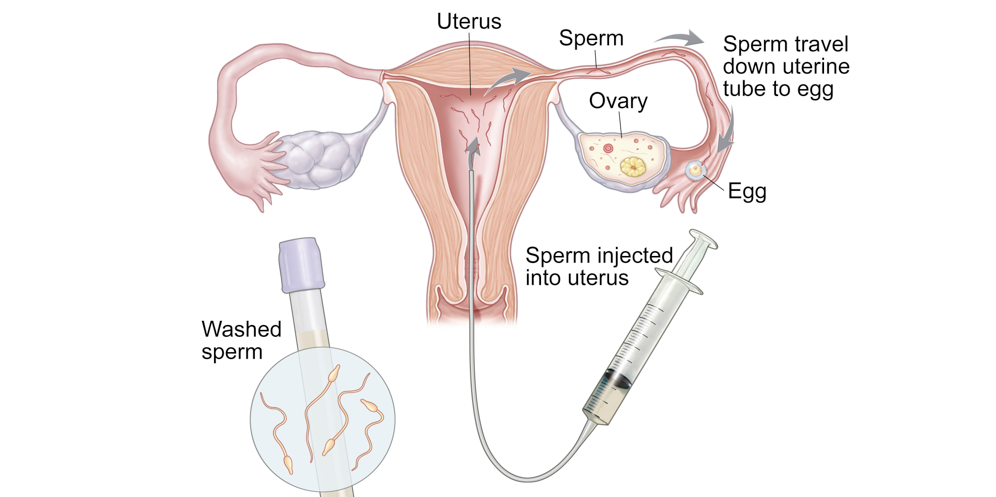IUI cost in India
The cost of IUI (intrauterine insemination) in
India ranges from USD 1200 to USD 6000
IUI (intrauterine insemination):
IUI (intrauterine insemination) is a form of artificial insemination that is used to treat infertility. Around the time your ovary produces one or more eggs to be fertilized, cleaned and concentrated sperm is inserted directly in your uterus. Because insemination happens during ovulation, it takes around two weeks following the operation for a positive pregnancy test to confirm if the therapy was effective.
The doctor may be able to detect concerns that are affecting your success rate through a diagnostic. IUI success rates range from 7% to 10% every cycle if you have healthy eggs and two fallopian tubes and are having unexplained infertility. The IUI technique should take only a few minutes and should not be painful. When the speculum is placed, you may feel some slight discomfort, and when the catheter goes through the cervix, you may feel cramping. The soreness is just transient and should subside by the time the process is completed.
IUI (intrauterine insemination):
IUI (intrauterine insemination) is a form of artificial insemination that is used to treat infertility. Around the time your ovary produces one or more eggs to be fertilised, cleaned and concentrated sperm is inserted directly in your uterus.
Because insemination happens during ovulation, it takes around two weeks following the operation for a positive pregnancy test to confirm if the therapy was effective.
The doctor may be able to detect concerns that are affecting your success rate through a diagnostic. IUI success rates range from 7% to 10% every cycle if you have healthy eggs and two fallopian tubes and are having unexplained infertility.
The IUI technique should take only a few minutes and should not be painful. When the speculum is placed, you may feel some slight discomfort, and when the catheter goes through the cervix, you may feel cramping. The soreness is just transient and should subside by the time the process is completed.
Disease Overview:
Infertility
Infertility is typically characterised as a couple's inability to conceive after a year of frequent intercourse without contraception.
While infertility is not an illness, it and its treatment can have a significant impact on all parts of people's lives, resulting in a variety of psychological-emotional diseases or consequences such as turbulence, frustration, sadness, anxiety, hopelessness, guilt, and feelings of worthlessness.
Women's Signs of Potential Infertility
- Periods that are unusual. Bleeding is more intense or less intense than normal.
- Periods that are irregular. Each month, the amount of days between each cycle fluctuates.
- There are no periods in this sentence. You haven't had a period in a long time, or your periods have abruptly stopped.
- Periods of suffering. Back ache, pelvic discomfort, and cramps are all possibilities.
Disease Signs and Symptoms:
The inability to conceive is the most common sign of infertility. There may be no further symptoms at all. Infertile women may experience irregular or nonexistent menstrual cycles. Men with infertility may show indicators of hormonal abnormalities, such as changes in hair growth or sexual function, in some circumstances.
With or without therapy, the majority of couples will eventually conceive.
Women's Signs of Potential Infertility
- Periods that are unusual. Bleeding is more intense or less intense than normal.
- Periods that are irregular. Each month, the amount of days between each cycle fluctuates.
- There are no periods in this sentence. You haven't had a period in a long time, or your periods have abruptly stopped.
- Periods of suffering. Back ache, pelvic discomfort, and cramps are all possibilities.
Disease Causes:
To become pregnant, all of the steps during ovulation and fertilisation must be completed correctly. Some disorders that cause infertility in couples are present at birth, while others emerge later in life.
One or both partners may be affected by infertility. There are times when no cause can be found.
Male infertility causes
These may include the following:
Infections like chlamydia, gonorrhoea, mumps, or HIV can cause abnormal sperm production or function due to undescended testicles, genetic flaws, health issues including diabetes, or infections like chlamydia, gonorrhoea, mumps, or HIV. Varicocele, or enlargement of the veins in the testes, can potentially impact the quality of sperm.
Problems with sperm delivery caused by sexual issues, such as premature ejaculation; hereditary illnesses, such as cystic fibrosis; anatomical issues, such as a testicular obstruction;
or if the reproductive organs are damaged or injured.
Pesticides and other chemicals, as well as radiation, can cause overexposure to certain environmental conditions. Cigarette smoking, alcohol, marijuana, anabolic steroids, and antibiotics, as well as high blood pressure and depression, can all have an impact on fertility. Heat exposure, such as that seen in saunas or hot tubs, can boost body temperature and interfere with sperm production.
Cancer and its treatment, such as radiation or chemotherapy, can cause damage. Cancer treatment can have a significant impact on sperm production.
Female infertility causes
Female infertility can be caused by a variety of factors, including:
Ovulation abnormalities are problems with egg release from the ovaries. Hormonal abnormalities, such as polycystic ovary syndrome, are among them. Hyperprolactinemia is a condition in which the hormone prolactin is produced in excess.
Ovulation may be hampered by the hormone that increases breast milk supply. Thyroid hormone levels that are excessively high (hyperthyroidism) or too low (hypothyroidism) might disrupt the menstrual cycle and lead to infertility. Excessive activity, eating disorders, and malignancies are all possible underlying reasons.
Abnormalities with the cervix, polyps in the uterus, or the shape of the uterus are all examples of uterine or cervical abnormalities. Uterine fibroids are noncancerous (benign) tumours that block the fallopian tubes or prevent a fertilised egg from implanting in the uterus, resulting in infertility.
Inflammation of the fallopian tube is a common cause of fallopian tube injury or occlusion (salpingitis). Pelvic inflammatory illness, which is typically caused by a sexually transmitted infection, endometriosis, or adhesions, can cause this.
Endometriosis affects the function of the ovaries, uterus, and fallopian tubes when endometrial tissue grows outside of the uterus.
When the ovaries stop working and menstruation stops before the age of 40, this is known as primary ovarian insufficiency (early menopause). Although the cause is generally unknown, immune system illnesses, some genetic conditions such as Turner syndrome or carriers of Fragile X syndrome, and radiation or chemotherapy treatment have all been linked to early menopause.
Pelvic adhesions are scar tissue bands that bind organs and can develop as a result of a pelvic infection, appendicitis, endometriosis, or abdominal or pelvic surgery.
The treatment of cancer. Female fertility is frequently harmed by certain diseases, notably reproductive tumours. Radiation and chemotherapy both have the potential to impact fertility.
Disease Diagnosis:
Prior to infertility testing, your doctor or clinic will try to understand your sexual habits and give suggestions to help you get pregnant. There is no single cause for infertility in certain couples (unexplained infertility).
Infertility testing can be costly, and it might often require unpleasant procedures. The expense of fertility therapy may not be covered by some health insurance plans. Finally, even after all of the testing and counselling, there's no assurance that you'll become pregnant.
Male-specific tests
The testicles must create enough healthy sperm, and the sperm must be ejaculated efficiently into the vagina and go to the egg for male fertility. Male infertility tests aim to see if any of these systems are malfunctioning.
You may be subjected to a general physical examination, which may include a genital examination. Tests for fertility may include:
Analysis of sperm. One or more semen specimens may be requested by your doctor. Masturbation or halting intercourse and ejaculating your semen into a clean container are the most common ways to get sperm. Your sperm sample is examined in a laboratory. Urine may be checked for the presence of sperm in several instances.
Hormone testing is a procedure that involves measuring hormone levels. A blood test may be performed to detect your testosterone and other male hormone levels.
Genetic testing is a method of determining a person' In order to identify whether infertility is caused by a hereditary abnormality, genetic testing may be performed.
Biopsy of the testicles. A testicular biopsy may be conducted in some circumstances to detect abnormalities that contribute to infertility or to harvest sperm for assisted reproductive procedures like IVF.
Imaging. Imaging procedures such as a brain MRI, transrectal or scrotal ultrasonography, or a test of the vas deferens (vasography) may be used in some instances.
Other types of testing Other tests to check the quality of the sperm, such as examining a semen specimen for DNA abnormalities, may be conducted in rare situations.
Women's tests
Women's fertility is dependent on their ovaries producing healthy eggs. The reproductive tract must allow an egg to move via the fallopian tubes and fertilise with sperm. The fertilised egg must make its way to the uterus and implant itself in the lining. Female infertility tests look to see if any of these mechanisms are malfunctioning.
You may be subjected to a general physical examination, which may include a gynaecological examination.
Ovulation testing is one example of a fertility test. A blood test determines whether you're ovulating by measuring hormone levels.
Hysterosalpingography is a procedure that examines the status of your uterus and fallopian tubes, looking for blockages or other issues. An X-ray is obtained after an X-ray contrast is injected into your uterus to evaluate if the cavity is normal and if the fluid leaks out of your fallopian tubes.
Ovarian reserve testing is a procedure that involves examining the ovarian reserve. This test is used to figure out how many eggs are accessible for ovulation. Hormone testing early in the menstrual cycle is a common starting point for this strategy.
Other hormone tests are available. Ovulatory hormones, as well as pituitary hormones that influence reproductive processes, are checked in other hormone assays.
Imaging tests are performed. Ultrasound of the pelvis looks for uterine or ovarian illness.
A sonohysterogram, also known as a saline infusion sonogram, is sometimes used to view things inside the uterus that a standard ultrasound cannot.
Depending on your situation, you may be subjected to the following tests:
Hysteroscopy. Your doctor may order a hysteroscopy to check for uterine disease based on your symptoms. Your doctor will put a small, illuminated instrument through your cervix into your uterus to view any potential abnormalities throughout the operation.
Laparoscopy. Making a small incision behind your navel and inserting a thin viewing equipment to examine your fallopian tubes, ovaries, and uterus is all part of this minimally invasive procedure. Endometriosis, scarring, blockages or abnormalities of the fallopian tubes, and problems with the ovaries and uterus can all be detected with a laparoscopy.
Disease Treatment:
Treatment for infertility is based on:
- What is the source of infertility?
- How long have you been unable to conceive?
- Your age and the age of your partner
- Personal inclinations
- Some causes of infertility are irreversible.
Couples who are unable to conceive naturally can often produce a pregnancy via the use of assisted reproductive technology. Treatment for infertility can be costly, physically demanding, emotionally draining, and time consuming.
Men's treatment
Treatment options for men with general sexual issues or a shortage of healthy sperm include:
Factors affecting one's way of life. Discontinuing some drugs, lowering or eliminating dangerous substances, enhancing frequency and timing of intercourse, exercising frequently, and optimising other aspects that may otherwise affect fertility can all help to enhance chances for pregnancy.
Medications. Certain drugs can help increase sperm count and increase the chances of a successful pregnancy. These drugs have been shown to improve testicular function, particularly sperm production and quality.
Surgery. Surgery may be able to cure a sperm obstruction and restore fertility in some cases. In some circumstances, treating a varicocele surgically can boost your chances of getting pregnant.
The retrieval of sperm When ejaculation is difficult or there are no sperm in the ejaculated fluid, several approaches are used to collect sperm. They may also be utilised when assisted reproductive procedures are being considered but sperm levels are low or aberrant.
Women's treatment
Some women just require one or two treatments to increase their fertility. Other women may require a combination of treatments in order to conceive.
Fertility medications are used to stimulate ovulation. Fertility medicines are the most common treatment for women who are unable to conceive because of ovulation problems. Ovulation is regulated or induced by these drugs. Consult your doctor about your fertility medicine options, including the advantages and disadvantages of each.
IUI (intrauterine insemination) is a method of conceiving a (IUI). Healthy sperm are inserted directly in the uterus during IUI about the time the ovary releases one or more fertilised eggs. The timing of IUI can be matched with your regular cycle or with fertility medicines, depending on the cause of infertility.
Fertility restoration surgery. Hysteroscopic surgery can be used to address uterine disorders like endometrial polyps, a uterine septum, intrauterine scar tissue, and certain fibroids. Larger fibroids, endometriosis, and pelvic adhesions may necessitate laparoscopic surgery.
Aspects of assisted reproduction technology
Process of in vitro fertilisation
Assisted reproductive technology (ART) refers to any fertility procedure that manipulates the egg and sperm. ART comes in a variety of forms.
The most prevalent ART method is in vitro fertilisation (IVF). IVF entails stimulating and extracting numerous mature eggs, fertilising them with sperm in a lab dish, and implanting the embryos several days later in the uterus.
In an IVF cycle, several procedures may be employed, such as:
Injection of sperm into the cytoplasm (ICSI). A developed egg is injected with a single healthy sperm. When the quality or quantity of the sperm is low, or fertilisation attempts during previous IVF cycles have failed, ICSI is frequently performed.
Hatching with assistance. By opening the embryo's outer coating, this procedure aids in the embryo's implantation into the uterine lining (hatching).
Donor sperm or eggs The majority of ART is performed with a couple's own eggs and sperm. If you have severe issues with your eggs or sperm, you can use eggs, sperm, or embryos from a known or anonymous donor instead.
Carrier during pregnancy. IVF with a gestational carrier is an option for women who don't have a functional uterus or for whom pregnancy offers a major health risk. In this situation, the couple's embryo is implanted in the carrier's uterus in order to achieve pregnancy.
Country wise cost comparison for IUI:
| Country | Cost |
|---|---|
| India | $1530 |
| United Arab Emirates | $2294 |
| Singapore | $7994 |
Treatment and Cost
37
Total Days
In Country
- 7 Day in Hospital
- 2 No. Travelers
- 30 Days Outside Hospital
Treatment cost starts from
$1700
Popular Hospital & Clinic
Featured Hospital
10 Hospitals
Types of IUI in Fortis Memorial Research Institute and its associated cost
| Treatment Option | Approximate Cost Range (USD) |
|---|---|
| No Treatment option added | |
- Address: Sector - 44, Opp. HUDA City Center,Gurgaon, Haryana - 122002, India
- Facilities related to Fortis Memorial Research Institute: Private Rooms, Translator, Nursery / Nanny Services, Airport Pick up, Personal Assistance / Concierge, Free Wifi, Local Tourism Options, International Cuisine, Phone in Room, Private Driver / Limousine Services, Post operative followup, Mobility Accessible Rooms, Online Doctor Consultation, Air Ambulance, Religious Facilities, Rehabilitation, Cafe, TV in room, Car Hire, Health Insurance Coordination,
50
DOCTORS IN 35 SPECIALITIES
20+
FACILITIES & AMENITIES
Types of IUI in CK Birla Hospital, Gurgaon and its associated cost
| Treatment Option | Approximate Cost Range (USD) |
|---|---|
| No Treatment option added | |
- Address: Block J, CK Birla Hospital, Nirvana Central Rd, Mayfield Garden, Sector 51, Gurugram, Haryana 122018
- Facilities related to CK Birla Hospital, Gurgaon: The hospital has following facilities: Patient Rooms: Presidential suite, suites, junior suites, deluxe single and shared rooms 4 state-of-the-art modular OTs Critical Care Facilities Labour delivery rooms (LDR) with piped Entonox for pain management North India’s only water-birthing facility Advanced IVF laboratory Chemo Daycare center Physiotherapy Centre 24x7 Radiology - including 4D ultrasound, X-ray, digital mammography, BMD, ECHO 24x7 Pathology including advanced genetic testing 24x7 Emergency 24x7 Pharmacy Studio for fitness, antenatal and post-natal classes & to host medical and educational workshops Café serving healthy & nutritious food and drinks
13
DOCTORS IN 21 SPECIALITIES
20+
FACILITIES & AMENITIES
Types of IUI in BLK-Max Super Speciality Hospital and its associated cost
| Treatment Option | Approximate Cost Range (USD) |
|---|---|
| No Treatment option added | |
- Address: Pusa Road, New Delhi-110005
- Facilities related to BLK-Max Super Speciality Hospital: Private Rooms, Translator, Nursery / Nanny Services, Personal Assistance / Concierge, Free Wifi, International Cuisine, Phone in Room, Private Driver / Limousine Services, Post operative follow-up, Mobility Accessible Rooms, Rehabilitation, Cafe, TV in room, Car Hire, Health Insurance Coordination
17
DOCTORS IN 33 SPECIALITIES
20+
FACILITIES & AMENITIES
Types of IUI in Max Super Speciality Hospital and its associated cost
| Treatment Option | Approximate Cost Range (USD) |
|---|---|
| No Treatment option added | |
- Address: Max Super Speciality Hospital No. 1, 2, Press Enclave Road, Mandir Marg, Saket Institutional Area, Saket, New Delhi, Delhi, 110017, India
- Facilities related to Max Super Speciality Hospital:
53
DOCTORS IN 34 SPECIALITIES
20+
FACILITIES & AMENITIES
Types of IUI in Fortis Escorts Heart Institute and its associated cost
| Treatment Option | Approximate Cost Range (USD) |
|---|---|
| No Treatment option added | |
- Address: Okhla Road,New Delhi - 110 025 (INDIA)
- Facilities related to Fortis Escorts Heart Institute: Private Rooms, Translator, Nursery / Nanny Services, Personal Assistance / Concierge, Free Wifi, International Cuisine, Phone in Room, Private Driver / Limousine Services, Post operative follow-up, Mobility Accessible Rooms, Rehabilitation, Cafe, TV in room, Car Hire, Health Insurance Coordination
19
DOCTORS IN 33 SPECIALITIES
20+
FACILITIES & AMENITIES
Types of IUI in PSRI Hospital and its associated cost
| Treatment Option | Approximate Cost Range (USD) |
|---|---|
| No Treatment option added | |
- Address: Press Enclave Marg, J Pocket, Phase II, Sheikh Sarai, New Delhi, Delhi 110017
- Facilities related to PSRI Hospital: Private Rooms, Translator, Nursery / Nanny Services, Personal Assistance / Concierge, Free Wifi, International Cuisine, Phone in Room, Private Driver / Limousine Services, Post operative follow-up, Mobility Accessible Rooms, Rehabilitation, Cafe, TV in room, Car Hire, Health Insurance Coordination
8
DOCTORS IN 33 SPECIALITIES
20+
FACILITIES & AMENITIES
Types of IUI in Fortis Flt. Lt. Rajan Dhall Hospital, Vasant Kunj, Delhi and its associated cost
| Treatment Option | Approximate Cost Range (USD) |
|---|---|
| No Treatment option added | |
- Address: Fortis Flt. Lt. Rajan Dhall Hospital, Aruna Asaf Ali Marg, Pocket 1, Sector B, Vasant Kunj, New Delhi, Delhi 110070
- Facilities related to Fortis Flt. Lt. Rajan Dhall Hospital, Vasant Kunj, Delhi: Private Rooms, Translator, Nursery / Nanny Services, Personal Assistance / Concierge, Free Wifi, International Cuisine, Phone in Room, Private Driver / Limousine Services, Post operative follow-up, Mobility Accessible Rooms, Rehabilitation, Cafe, TV in room, Car Hire, Health Insurance Coordination
46
DOCTORS IN 34 SPECIALITIES
20+
FACILITIES & AMENITIES
Types of IUI in MAX Super Speciality hospital, Patpadganj Delhi and its associated cost
| Treatment Option | Approximate Cost Range (USD) |
|---|---|
| No Treatment option added | |
- Address: 108A, Indraprasth Extension, Patpadganj, New Delhi- 110092, India
- Facilities related to MAX Super Speciality hospital, Patpadganj Delhi: Private Rooms, Translator, Nursery / Nanny Services, Personal Assistance / Concierge, Free Wifi, International Cuisine, Phone in Room, Private Driver / Limousine Services, Post operative follow-up, Mobility Accessible Rooms, Rehabilitation, Cafe, TV in room, Car Hire, Health Insurance Coordination
52
DOCTORS IN 33 SPECIALITIES
20+
FACILITIES & AMENITIES
Types of IUI in Medanta-The Medicity, Gurgaon and its associated cost
| Treatment Option | Approximate Cost Range (USD) |
|---|---|
| No Treatment option added | |
- Address: CH Baktawar Singh Road, Sector 38, Gurugram, Haryana 122001
- Facilities related to Medanta-The Medicity, Gurgaon: TV in room Private rooms, Free Wifi, Phone in Room, Mobility accessible rooms, Family accommodation, Laundry, Welcome Safe in the room, Nursery / Nanny services. Dry cleaning, Personal assistance / Concierge Religious facilities, Fitness Spa and wellness Café, Business Centre, Shop, Dedicated smoking areas, Beauty Salon, Special offer for group stays, Parking available, Health insurance coordination, Medical travel insurance, Foreign currency exchange, ATM, Credit Card, Debit Card, Net banking, Diet on Request, Restaurant, International Cuisine, Treatment Related Medical records transfer, Online doctor consultation, Rehabilitation, Pharmacy, Document legalization, Post operative follow-up, Language Interpreter, Translation services, Transportation, Airport pickup, Local tourism options, Local transportation booking, Visa / Travel office, Car Hire, Private driver / Limousine services, Air ambulance
52
DOCTORS IN 33 SPECIALITIES
20+
FACILITIES & AMENITIES
Types of IUI in Indraprastha Apollo Hospitals, New Delhi and its associated cost
| Treatment Option | Approximate Cost Range (USD) |
|---|---|
| No Treatment option added | |
- Address: Mathura Rd, Jasola Vihar, New Delhi, Delhi 110076
- Facilities related to Indraprastha Apollo Hospitals, New Delhi: Private Rooms, Translator, Nursery / Nanny Services, Personal Assistance / Concierge, Free Wifi, International Cuisine, Phone in Room, Private Driver / Limousine Services, Post operative follow-up, Mobility Accessible Rooms, Rehabilitation, Cafe, TV in room, Car Hire, Health Insurance Coordination
37
DOCTORS IN 33 SPECIALITIES
20+
FACILITIES & AMENITIES

